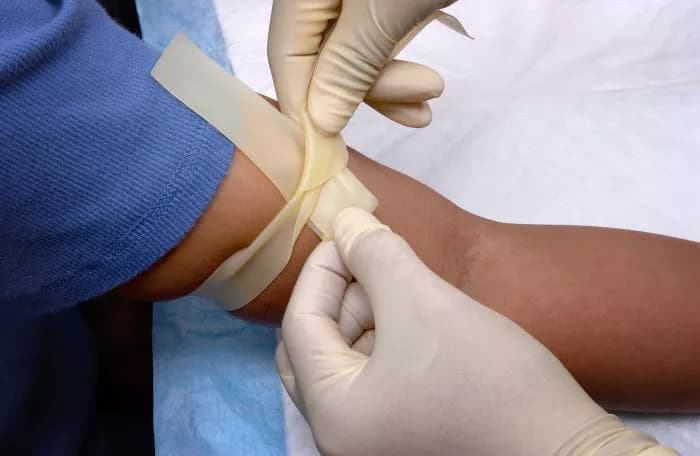
Sixteen Genetic Markers Can Cut A Life Story Short
The answer to how long each of us will live is partly encoded in our genome. Researchers have identified 16 genetic markers associated with a decreased lifespan, including 14 new to science. This is the largest set of markers of lifespan uncovered to date. About 10% of the population carries some configurations of these markers that shorten their life by over a year compared with the population average. Spearheaded by scientists from the SIB Swiss Institute of Bioinformatics, the Lausanne University Hospital (CHUV), the University of Lausanne and the EPFL, the study provides a powerful computational framework to uncover the genetics of our time of death, and ultimately of any disease. The study is published in Nature Communications.
Why do some of us live longer than others? While the environment in which we live -- including our socio-economic status or the food we eat -- plays the biggest part, about 20 to 30% of the variation in human lifespan comes down to our genome. Changes in particular locations in our DNA sequence, such as single-nucleotide polymorphisms (SNPs), could therefore hold some of the keys to our longevity.
"Until now, the most comprehensive studies had found only two hits in the genome," points out Prof. Zoltán Kutalik, Group Leader at SIB and assistant professor at the Institute of Social and Preventive Medicine (CHUV).
In a new study, a team of scientists, led by Kutalik, has used an innovative computational approach to analyse a dataset of 116,279 individuals and probe 2.3 million human SNPs.
An unparalleled number of SNPs associated with lifespan (16) were uncovered, including 14 new to science. "In our approach, we prioritized changes in the DNA known to be linked to age-related diseases in order to scan the genome more efficiently," says Kutalik. "This is the largest set of lifespan-associated genetic markers ever uncovered."
About 1 in 10 people carry some configurations of these markers that shorten their life by over a year compared with the population average. In addition, a person inheriting a lifespan-shortening version of one of these SNPs may die up to seven months earlier.
The approach also enabled the researchers to explore how the DNA changes affected lifespan in a holistic way. They found that most SNPs had an effect on lifespan by impacting more than a single disease or risk factor, for example through being more addicted to smoking as well as through being predisposed to schizophrenia.
The discovered SNPs, combined with gene expression data, allowed the researchers to identify that lower brain expression of three genes neighbouring the SNPs (RBM6, SULT1A1 and CHRNA5, involved in nicotine dependence) was causally linked to increased lifespan.
These three genes could therefore act as biomarkers of longevity, i.e. survival beyond 85-100 years. "To support this hypothesis, we have shown that mice with a lower brain expression level of RBM6 lived substantially longer," comments Prof. Johan Auwerx, professor at the EPFL.
"Interestingly, the gene expression impact of some of these SNPs in humans is analogous to the consequence of a low-calorie diet in mice, which is known to have positive effects on lifespan," adds Prof. Marc Robinson-Rechavi, SIB Group Leader and professor at the University of Lausanne.
"Our findings reveal shared molecular mechanisms between human and model organisms, which will be explored in more depth in the future," concludes Prof. Bart Deplancke, SIB Group Leader and professor at the EPFL.
This study, which is a part of the AgingX Project supported by SystemsX.ch (the Swiss Initiative in Systems Biology), therefore brings us a step closer to grasping the mechanisms of human aging and longevity. It also proposes an innovative computational framework to improve the power of genomewide investigations of diseases more generally. As such, the framework could have promising applications in the field of personalized medicine.
Materials provided by Swiss Institute of Bioinformatics. Note: Content may be edited for style and length.
Disclaimer: DoveMed is not responsible for the accuracy of the adapted version of news releases posted to DoveMed by contributing universities and institutions.
Primary Resource:
Aaron F. McDaid, Peter K. Joshi, Eleonora Porcu, Andrea Komljenovic, Hao Li, Vincenzo Sorrentino, Maria Litovchenko, Roel P. J. Bevers, Sina Rüeger, Alexandre Reymond, Murielle Bochud, Bart Deplancke, Robert W. Williams, Marc Robinson-Rechavi, Fred Paccaud, Valentin Rousson, Johan Auwerx, James F. Wilson, Zoltán Kutalik. (2017). Bayesian association scan reveals loci associated with human lifespan and linked biomarkers. Nature Communications, 8. DOI: 10.1038/NCOMMS15842
Related Articles
Test Your Knowledge
Asked by users
Related Centers
Related Specialties
Related Physicians
Related Procedures
Related Resources
Join DoveHubs
and connect with fellow professionals

0 Comments
Please log in to post a comment.